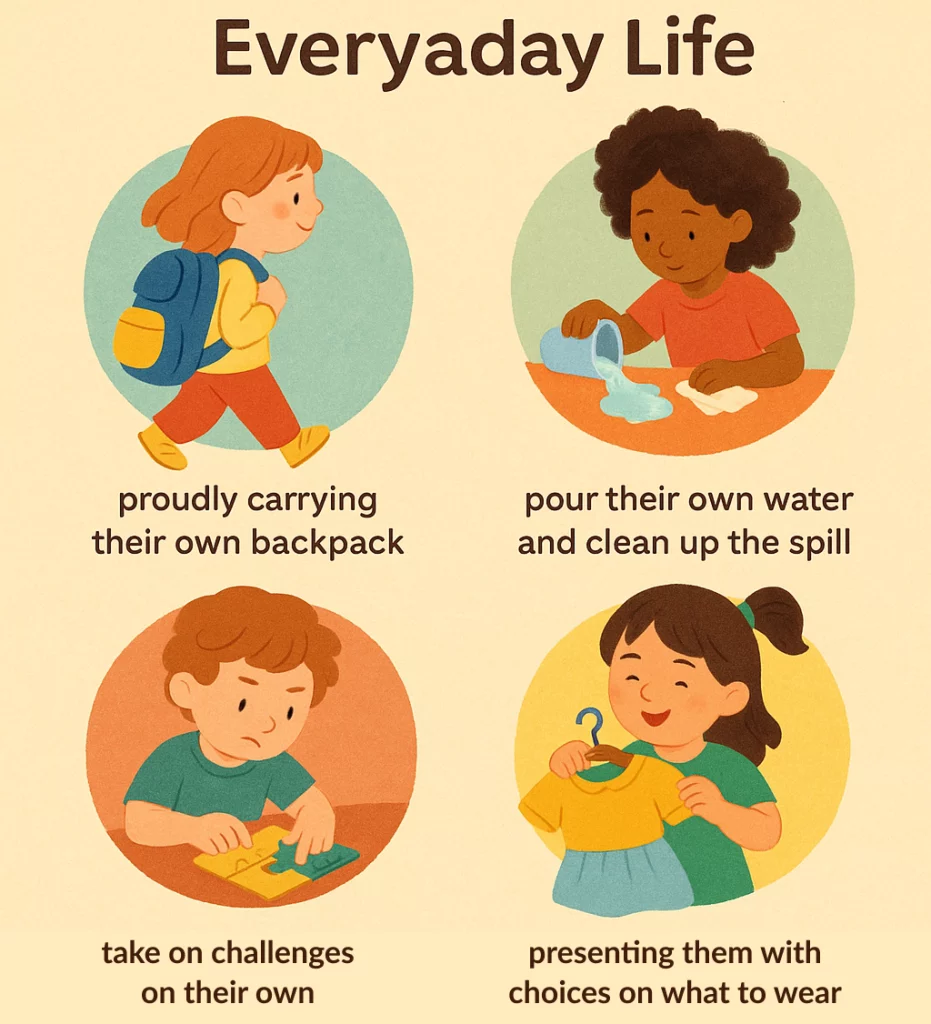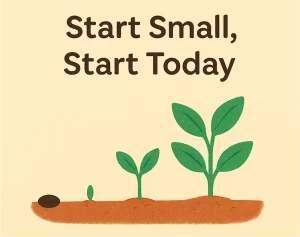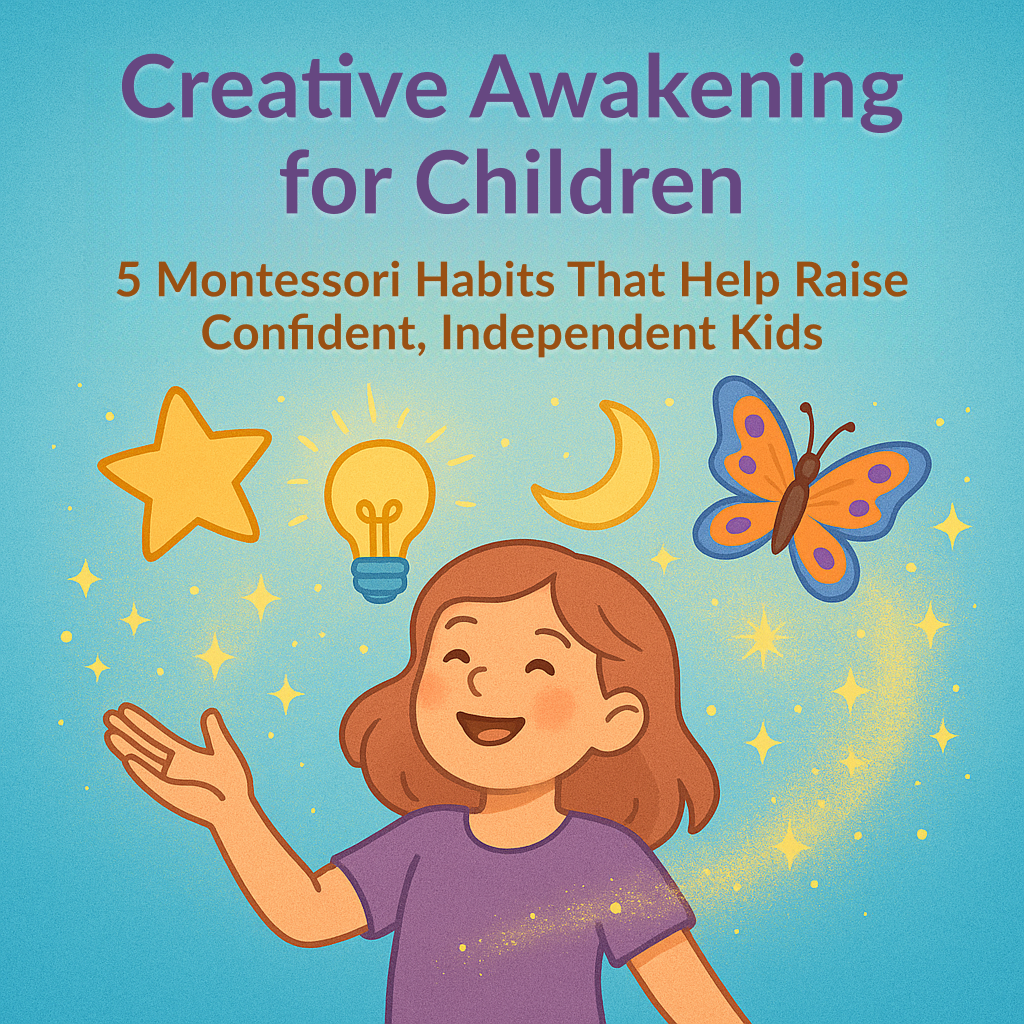A Creative Awakening Starts with “I Can Do This!”
Confidence doesn’t magically appear one day—it grows slowly, nurtured by the way we invite our children to engage with the world. A child who is trusted, given space to try, and offered chances to make real decisions starts to believe: “I can do this.” And from that belief blooms creativity, independence, and resilience.
The best part? You don’t need to overhaul your home or your parenting style. By making a few small, thoughtful shifts, you can spark a creative awakening in your child that lasts a lifetime.
Why Confidence and Creativity Start at Home
As parents, we all want to raise children who believe in themselves, explore the world with curiosity, and handle life’s challenges with calm strength. And while schools and environments matter, the foundation is laid at home.
Home is where your child learns to trust their voice, solve their own problems, and feel safe trying and failing. It’s in the everyday moments—deciding what to wear, pouring a glass of water, setting the table—that children begin to shape their sense of capability.
Even the smallest freedoms, when offered intentionally, can plant seeds of confidence.
What Montessori Teaches Us About Confidence
Montessori is more than a classroom style. At its heart, it’s a mindset: children are naturally capable, curious, and eager to learn. They thrive when trusted to try and when the environment is prepared for their success.
Rather than stepping in too quickly, Montessori teaches us to slow down, observe, and offer support only when needed. This builds internal strength, independence, and a deep sense of self-worth.
You don’t need shelves full of wooden toys to embrace this at home. These five simple habits, drawn from Montessori principles, can easily fit into any family routine.
5 Montessori Habits That Support a Creative Awakening
1. Offer Real Choices Daily
Offering choices—real, meaningful ones—gives your child a sense of agency and respect. When children are invited to make decisions throughout their day, they feel seen, capable, and included.
Example: Instead of dressing your toddler each morning, try: “Would you like the red shirt or the blue one today?”
These small decisions help them feel respected and in control. Over time, they learn that their preferences matter, and that confidence carries into other areas of life.
2. Create ‘Yes Spaces’ at Home
Children thrive in environments that support independence and exploration. A ‘yes space’ is a thoughtfully prepared area where your child can safely play, explore, and make decisions without constant adult correction.
Example: A low shelf with a few books and toys your child can access independently. A drawer in the kitchen with their dishes. Hooks at their height for coats.
These spaces say: “You belong here. You are trusted.”
3. Encourage Effort Over Outcome
Focusing on effort rather than results helps children value the process of learning. When we highlight persistence, creativity, and focus, we build intrinsic motivation and reduce fear of failure.
Example: Rather than “Great drawing!”, try: “You spent so much time working on those lines. Tell me about it!”
This encourages creativity and resilience. Your child learns to value persistence and self-expression over perfection.
4. Pause Before Helping
Giving your child space to try—even if it means struggling—fosters independence and resilience. Pausing before stepping in shows trust and allows children to build real problem-solving skills.
Example: Your child is trying to zip their coat. Instead of stepping in immediately, wait. Count to ten. Let them ask for help, or figure it out.
This moment teaches them that struggle is part of learning—and that they can do hard things.
5. Let Them Contribute
Children feel empowered and valued when they are given opportunities to contribute to family life. Involving them in meaningful tasks shows that their efforts matter and helps build a strong sense of responsibility.
Example: Invite them to help stir pancake batter, wipe the table after breakfast, or match socks from the laundry.
These tasks might slow things down, but they build confidence and a sense of purpose.

What This Looks Like in Everyday Life
You might notice your child proudly carrying their own backpack, or choosing their outfit with joy. Maybe they pour their own water and clean up the spill without panic. Or they struggle with a puzzle and say, “I can do this myself.”
These are the signs of a creative awakening: small, brave moments of independence, confidence, and calm persistence.
And they start with the habits you build together, at home.
Start Small, Start Today
You don’t need a perfect setup or a full plan. Just start with one habit. Offer one new choice today. Create one small space they can explore without “no’s.” Notice one effort and name it with love.
With time, these small shifts shape something big. A confident child. An independent thinker. A creative mind ready to explore the world.

Want More Like This?
We share gentle, practical ideas every week to help you raise curious, confident kids. Join our newsletter to get parenting inspiration, screen-free tips, and simple tools delivered straight to your inbox.



